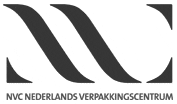Scientific proof of high-value applications for recycled plastics
TI Food and Nutrition has found scientific evidence of high-value applications for recycled plastic packaging. Within the theme Food Chain Sustainability and Dynamics the processing chain of recycled plastic packaging, its quality and its application properties were studied.
The outcome of this study rebuts several misconceptions about the world of plastics recycling and will encourage the development of new reprocessing technologies for high-value applications of recycled plastic packaging.
In the last decades the annual production of virgin plastics has increased up to 265 million tons worldwide, of which 39% is used for packaging. In a world with increasing scarcities of fossil resources, it is favourable to reduce plastic packaging waste and to increase its recycling rate. Wageningen UR Food & Biobased Research, Eindhoven University of Technology and the RWTH University of Aachen joined forces to study the processing, quality and range of applications for recycled plastic packaging. Their ambition is to improve the sorting and reprocessing technologies to enable a high-end / high-value reuse of plastic packaging from household waste.
One of the most important findings is that the quality of milled goods is independent from the collection method of the household plastic packaging waste. The major collection systems in the Netherlands (source- and post-separation), show comparable results. When compared to recycled content from post-industrial waste, the quality is less good. Furthermore, the results showed that recycled polymers (PE, PP, Film) contain about 10% of foreign plastics which influence the properties of the recycled products (TI Food and Nutrition News article, 20 December 2012).

